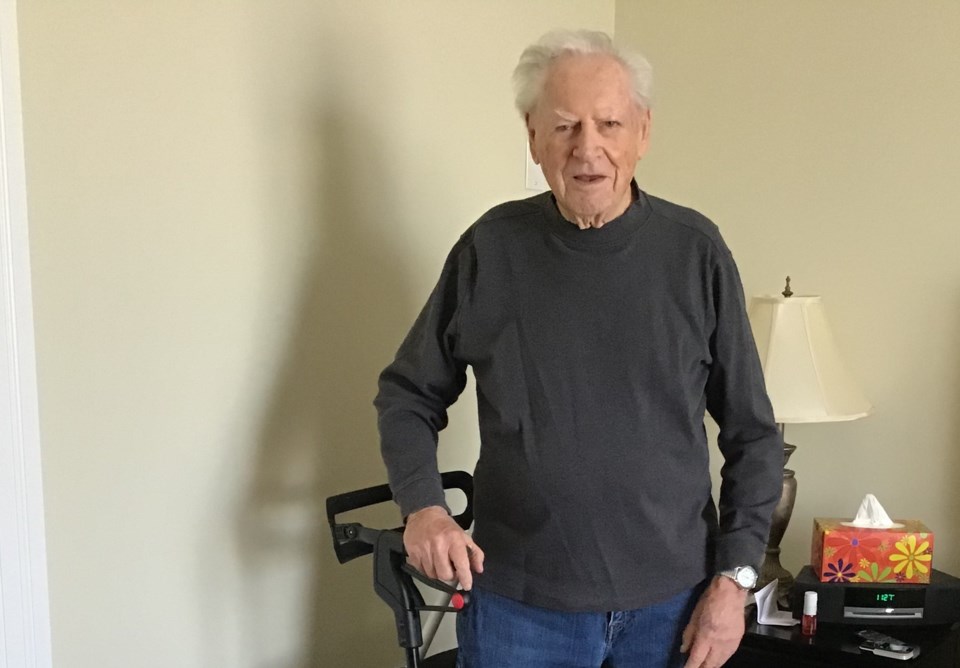When Frank Kelly left his Newmarket home at the Renoir Retirement Residence to attend a family funeral Saturday, he didn't realize he would have a decision to make.
As a result of enhanced measures introduced by the province, he received a call telling him that if he returned, he would be confined to his room for 14 days to ensure he had no symptoms of COVID-19 — or he could find somewhere else to stay until 14 days had passed.
The 92-year-old decided he would stay with his daughter, Kathy, rather than face two weeks in isolation.
“I didn’t know when I left Saturday it meant I would be in isolation when I came back,” Kelly said, adding he understands the importance of the measures aimed at containing the spread of the virus.
Already, the Renoir had implemented a number of changes, he said, from removing table cloths and salt and pepper shakers in the dining room and cancelling entertainment to visitor screening.
“I think the Renoir has done very well,” said Kelly, who is borrowing his son-in-law's clothes for the unplanned visit.
He's keeping in touch with friends at the residence with daily calls and Face Time chats.
Deputy Premier and Minister of Health Christine Elliott and Minister of Long-Term Care Dr. Merrilee Fullerton issued a statement yesterday confirming the additional protocols to ensure the safety of residents of long-term care homes and seniors residences.
Ontario Chief Medical Officer of Health Dr. David Williams has advised long-term care homes to only allow essential visitors — people visiting residents who are very ill or require end-of-life care — until further notice.
Older adults and people with serious chronic medical conditions, including heart disease, diabetes and lung disease, are at higher risk.
“This decision was not made lightly. We recognize visits provide important social connections and improvements to quality of life for long-term care residents and families may feel frustration, sadness and even anger in light of this change,” said the statement.
“However, during the global COVID-19 pandemic, the health and well-being of Ontarians — especially long-term care residents who are more vulnerable to such diseases, as well as their families and staff — is our number 1 priority.”
Long-term care homes across the province are required to restrict non-essential visits and screen essential visitors, staff, students, volunteers, residents moving into a long-term care home and residents returning to a long-term care home.
In addition, when long-term care homes submit samples for standard respiratory testing as part of their respiratory infection outbreak protocols currently in place for flu season, they are also being tested for COVID-19 automatically to ensure the province identifies potentially unknown cases.
“We also want to thank the staff working at long-term care homes in these challenging conditions. Their efforts and dedication during this time will go far to improve the lives of those residents in homes,” the statement said.



